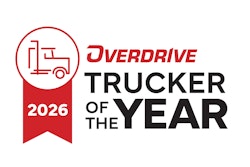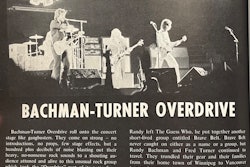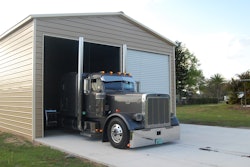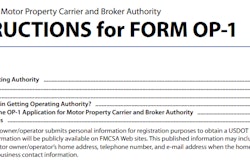Reading recent news updates, I was reminded of times in my life when major events transformed the ways we live and work. The train wreck in East Palestine, Ohio, is a very big deal. And we should all be concerned for our community’s health and safety. I grew up when the public was easily kept in the dark -- we had no Internet, of course, and less freedom of information. The only news received came through the AM radio, a local newspaper or, if you had a TV, the nightly news broadcast.
The initial reaction to the Ohio train wreck has the character of response to what I'll call a fast failure. Nearly every day there is additional information being reported regarding that huge black cloud of who-knows-what chemicals being burned -- those that hadn’t leaked away already. And there will likely continue to be reports of why the companies and people in charge have decided to respond as they have. With the financial losses and liability heaped upon the rail company, damage control is in overdrive, an attempt at defense and limiting financial repercussions.
Will government agencies tasked with the responsibility of oversight gain traction for future mandates aimed at improving safety with new equipment and technology (some of which we are learning had been proposed years ago)?

If there's any good to come out of these kinds of events, it's the opportunity to assess and change -- implement new procedures, clearer checks and balances through communication, better use of available technologies and of safety equipment. There are real opportunities to usher in improvements at the company level aimed at preventing an accident like this from happening again.
Yes, these are disruptions to how systems have evolved, but rather than going automatically negative, embrace the idea that, historically, disruptions are powerful forces for innovation and improvement, teeing up opportunities to solve problems. That’s the case even for individual actors who might be less than willing to accept the risk, and rewards, of change.
And consider how managing prevention over time can lull us into a mind-set of complacency. Investing in prevention can be a difficult cost to justify -- it’s only natural in the long absence of a crash or other incident to begin believing risk no longer exists. And when that happens, a systematic chain of slow failures gets more likely, with potential to reverse all you thought had been prevented. That’s when the train leaves the tracks.
Will derailment consequences spill over to trucking?
I wouldn’t count out the possibility. This train wreck and hazmat catastrophe could eventually impact the trucking regulations related to hazmat, raising the bar for operators and companies that haul such commodities. Adding fuel to the fire, within days of the Ohio derailment, we saw a truck accident involving a hazmat load in a van near Tucson that closed I-10 for a day. Dramatic videos all around social media, and pictures in news reports, showed a poisonous cloud fuming up from the trailer.
[Related: 'Extensive closure' expected after I-10 hazmat spill]
Virality of the images fuels plenty speculation. I will confess I speculated, too. Just what had happened? It was as if I couldn’t help myself. Would this accident have captured as much attention as it did without the Ohio train wreck’s high profile? We’ll never know the answer to that question, but the timeline and severity of accidents such as these are reasons I suggest as truck drivers and owners may want to begin preparing to adjust.
Might the cost to haul hazmat be affected? As owners, will you be able to afford such increasing costs for liabilities, possible equipment, securement changes or more?
I’m only able currently to engage my intuition and past experience hauling some hazmat, as well as many other commodities. First off, should we even have to say that if we haul hazmat, we need to be more careful? Oh, some of the things I’ve seen, and it isn’t just our drivers, of course! I suggest people have a general attitude that out of sight is out of mind, as the old saying goes. Closing the trailer doors and hiding an unsecure load in today’s world still happens. Such a line of defense may sound good in our heads, but it won’t hold up later.
Trucking companies of all sizes should engage the people on the front lines, who often are being missed. Sure, after the accident, actions are taken, but then what happens? How often does compliance and procedure training consist of nothing more than a company handing out a few documents and a video, followed by a multiple-choice questionnaire to drivers and contractors? What happens from that point forward, what checks and balances are needed, and as the truck driver what should you want for your own liability defense?
Ever been told the old “you’ll figure it out as you go, or just ask another driver”? I know I have, and I ask: Is that the best we can do?
The Roadcheck inspection blitz this year might offer opportunities to re-engage, given the focus on securement, at least for non-bulk hazmat loads like the van load that gassed on I-10 in Arizona.
[Related: Inspectors focusing on anti-lock brakes, cargo securement during Roadcheck in May]
It can take time for us to develop interpersonal trust with any company’s office staff. Once trust is established, though, it’s not hard to bring investments in new, interactive ways to train well before there is an accident, and to deliver clearer, accurate information at the time of dispatch and throughout the trip. After all, working together, front-line operators and staff need to be able to measure quality assurance with a goal of continuous improvement.
I suggest that companies and operators get more proactive on this front. Execute more complete and accurate pre-trip inspections, document trip plans in detail, with pictures of the bills of lading, hazmat documents, placards and the commodities before and after being loaded. Have a live phone conversation before leaving customers to review all of this information -- parties in charge of risk management should sign off that procedures have been followed, requirements met.
Accountability among all the parties, thus, can be achieved -- and the parties protected when something happens, without systemic breakdown, without the proverbial train leaving the tracks.
Find more information about safety in practice, among a myriad of other topics, in the Overdrive/ATBS-coproduced "Partners in Business" manual for new and established owner-operators, a comprehensive guide to running a small trucking business. Click here to download the 2022 edition of the Partners in Business manual free of charge, and keep an eye out for a new, updated 2023 manual later in the month of March. If you're planning to attend the Mid-America Trucking Show at the end of the month, join us March 31 for a Partners in Business seminar with Overdrive editors, ATBS and this story's author.










